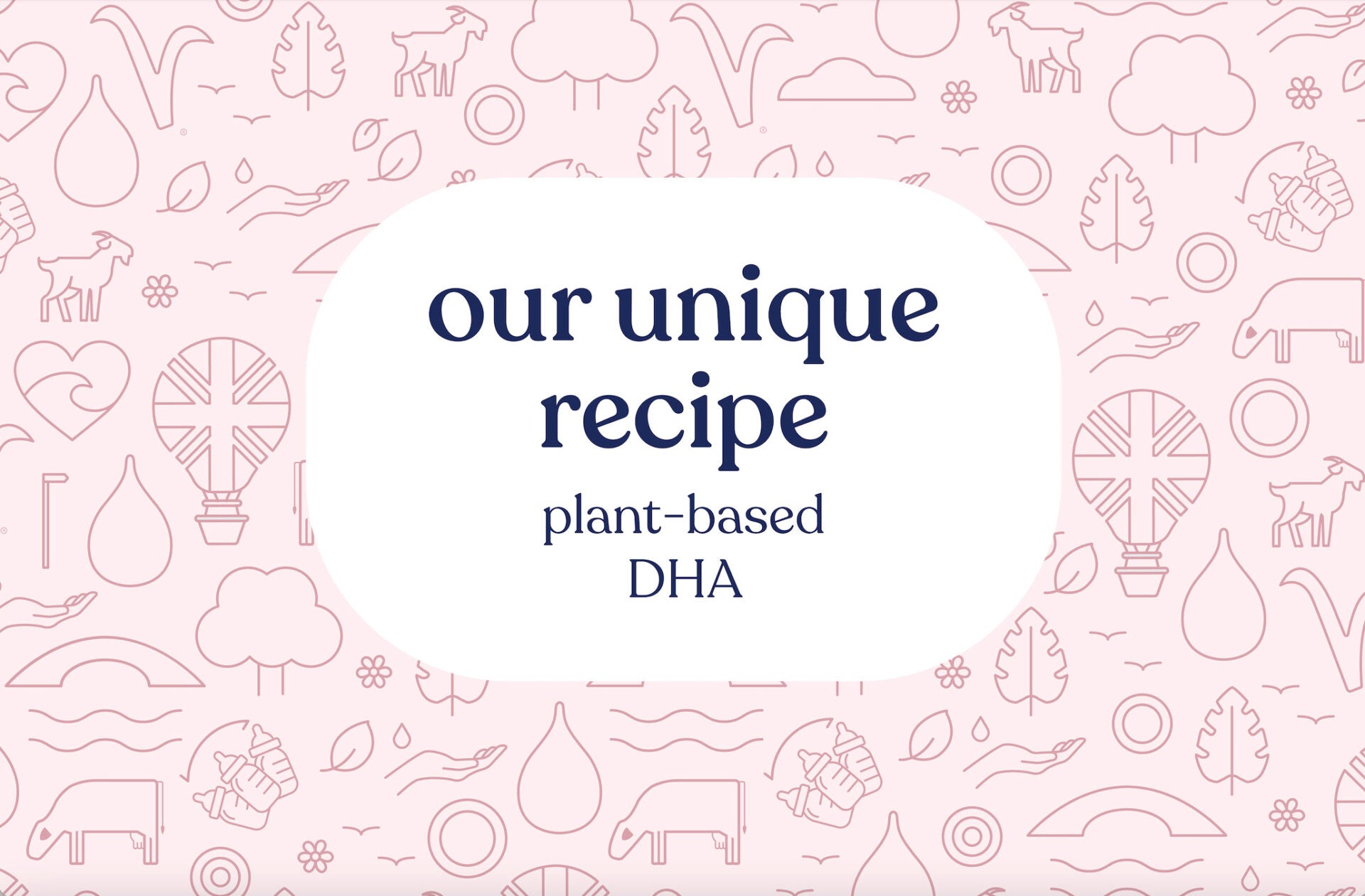Kendamil are committed to using minimal heating and processing when formulating our product lines. This helps to ensure the chemical integrity and health benefits of the omega-3 fats (and other components) added to our infant formula.Along with minimal processing, Kendamil believes in attempting to reduce the global impact and damage done by ingredient sourcing. One of the ways we take action to support this is by sourcing our omega-3 needs from algae-based sources instead of fish. Each year it is estimated that 16 million metric tons of fish are caught with the sole intention of fish meal and oil extraction.5 Much of this material is directly fed into large fish farming operations that do not use sustainable catching methods and are resource intensive to meet the growing demand for salmon as a health food. Instead of contributing to this long-term unsustainable practice, Kendamil prefers to use newer and greener techniques involving algae. The extraction of omega-3 oils from algae help to prevent some major issues facing fish oil extraction. Fish oil extraction typically requires organic solvents such as hexanes and leads to concerns about residual organic solvents in oil and the production of chemical waste. Conversely, extraction of omega-3 from algae oil that Kendamil uses in its products only involves water extraction techniques. Fish can also be high in pollutants, particularly mercury, that need to be removed during production thus making the end product more processed. Algae production is not subject to heavy metal contamination and also has a more controlled “production to product” oversight, unlike fish which can be more difficult to follow from start to finish with “middlemen” on fishing vessels and chemical extractors. A growing set of scientific research appears to support algae production of omega-3 fatty acids. In nature, algae are the starting point for the omega-3 rich environment associated with aquatic ecosystems. The ability to grow and culture these protists on a large scale with minimal waste and ecosystem disruption is promising. Algae rely on natural sources of energy, primarily the sunlight and environmental carbon dioxide, to produce the energy feeding the bottom of the food chain. Multiple recent scientific articles all give credibility to the use of algae-based omega-3 harvesting over the current fishing practices. 6,7,8 Summary
- Omega-3 fatty acids are vital to human health, immune function, and brain development.
- Omega-3 oils are chemically fragile and very susceptible to oxidation and going rancid. Heating and excessive processing can damage these fatty acids.
- Current bulk omega-3 harvesting relies heavily on unsustainable fish practices in both wild and farm raised environments. Algae production of omega-3 oils offers omega-3 production with a lower environmental impact.
- Kendamil is committed to algae sourcing of omega-3 fatty acids and uses low heat treatment methods with minimal processing to preserve nutrient integrity.
References
- Lauritzen, Lotte et al. “DHA Effects in Brain Development and Function.” Nutrients vol. 8,1 6. 4 Jan. 2016, doi:10.3390/nu8010006
- Hsieh RJ, Kinsella JE. Oxidation of polyunsaturated fatty acids: mechanisms, products, and inhibition with emphasis on fish. Adv Food Nutr Res. 1989;33:233-341. doi: 10.1016/s1043-4526(08)60129-1. PMID: 2697233.
- Stephen NM, Jeya Shakila R, Jeyasekaran G, Sukumar D. Effect of different types of heat processing on chemical changes in tuna. J Food Sci Technol. 2010 Mar;47(2):174-81. doi: 10.1007/s13197-010-0024-2. Epub 2010 Apr 10. PMID: 23572621; PMCID: PMC3550962.
- Loughrill E, Zand N. An investigation into the fatty acid content of selected fish-based commercial infant foods in the UK and the impact of commonly practiced re-heating treatments used by parents for the preparation of infant formula milks. Food Chem. 2016 Apr 15;197(Pt A):783-9. doi: 10.1016/j.foodchem.2015.10.141. Epub 2015 Oct 29. PMID: 26617017.
- Jennifer Nastu. In Depth: How Algal Oil for Aquaculture Could Help Capture Value in the Food Industry. Access: https://www.environmentalleader.com/2019/06/180248/
- Ciriminna, Rosaria & Meneguzzo, Francesco & Delisi, Riccardo & Pagliaro, Mario. (2017). Enhancing and improving the extraction of omega-3 from fish oil. Sustainable Chemistry and Pharmacy. 5. 10.1016/j.scp.2017.03.001.
- Hamilton, Mary L et al. “Towards the Industrial Production of Omega-3 Long Chain Polyunsaturated Fatty Acids from a Genetically Modified Diatom Phaeodactylum tricornutum.” PloS one vol. 10,12 e0144054. 14 Dec. 2015, doi:10.1371/journal.pone.0144054
- Adarme-Vega, T.C., Lim, D.K.Y., Timmins, M. et al. Microalgal biofactories: a promising approach towards sustainable omega-3 fatty acid production. Microb Cell Fact 11, 96 (2012). https://doi.org/10.1186/1475-2859-11-96

